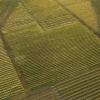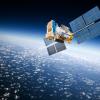ASA Program aims to discover, develop, and deploy new, more effective, and efficient ways of infusing systems science into policy and decision making for sustainable development.
Despite numerous success stories, many policies and decisions that currently aim to deal with global change are not sufficiently informed by cutting-edge science. Among the major barriers that prevent the effective input of science into policy are perceived shortfalls in agility, realism, and relevance of the current generation of methods and models from the standpoint of end users. To address these barriers, ASA strives to advance agile, realistic, and relevant systems analytical tools and methods, and facilitate a shared understanding of the capabilities and limits of these tools and methods with end users. Consequently, ASA’s efforts span the full range, from advancing research methods and tools of systems analysis to innovating at the interface between policy- and decision making, as well as with society at large.
ASA Program’s major objectives are:
- To innovate approaches and tools to analyze increasingly systemic, social-ecological risks and support decisions aimed at enhancing resilience and facilitating sustainability transitions and transformations.
- To further the capacity of agile, on-demand systems analysis underpinned by a suite of modeling frameworks of appropriate complexity.
- To mobilize multiple sources of data and the power of data science to diagnose and identify solutions to reduce vulnerabilities and risks.
- To advance feasible and effective ways of engagement with policymakers, the private sector, and citizens.
- To enhance trust and shared understanding of systems analysis methods and tools, in particular, through open science.
Projects
Staff
News

14 February 2025
Strengthening citizen science and sustainability monitoring in Europe

12 February 2025
The WorldCereal Reference Data Massive Open Online Course (MOOC) is available now!

10 February 2025
Systems analysis to tackle the monopolistic power in the era of AI
Events
Focus

18 November 2024
Leveraging social media intelligence for disaster risk management: a game-changer in real-time response
Social media intelligence mining is transforming disaster risk management. A new cutting-edge tool developed by IIASA researchers provides real-time insights from platforms like X and Google, enhancing rapid response during and after disasters, resource distribution, and effective crisis communication to better safeguard communities.

13 November 2024
COP29: Loss and Damage funding has to be at core of new climate finance regime
The focus of the ongoing COP is to decide on a new finance regime. Major polluters will be asked to massively increase their financial contributions to developing nations. Researchers from IIASA and CMCC show that Loss and Damage needs of vulnerable countries range between roughly 130 and 940 billion Dollars in 2025 alone. On top of money for mitigation and adaptation.
Publications
Zisopoulos, F.K., Fath, B. , Meirelles De Oliveira, B., Toboso-Chavero, S., D'Assenza-David, H., de Souza, V.M., Huang, H., Scrieciu, Ş., Clark, O.G., Noll, D., Singh, S., Stefanakis, A., Boyd, G., Schraven, D., & de Jong, M. (2025). Towards an ecological metaphor for regenerative circular economies. Ecological Economics 231 e108545. 10.1016/j.ecolecon.2025.108545. Elroy, O., Woo, G., Komendantova, N. , & Yosipof, A. (2025). A dual-focus analysis of wikipedia traffic and linguistic patterns in public risk awareness Post-Charlie Hebdo. Computers in Human Behavior Reports 17 e100580. 10.1016/j.chbr.2024.100580. Nunn, J., Cooper, A., Roger, E., Goldin, J., Tauginienė, L., Hager, G. , Hsing, P.-Y., & Costa, I. (2025). Feedback on the ‘Draft Principles for Open Science Monitoring' from the members of the Citizen Science and Open Science Community of Practice. Open Science Community of Practice Ajates, R., Benyei, P., Avery, H., Butkeviciene, E., Czeglédi, A., Desclaux, D., Hager, G. , Heinisch, B., Hoebe, P.N., van Noordwijk, T.C.G.E., & Barzman, M. (2025). Navigating the participatory turn in agricultural and food research: Best practice from citizen science. Ambio 10.1007/s13280-025-02151-7.







